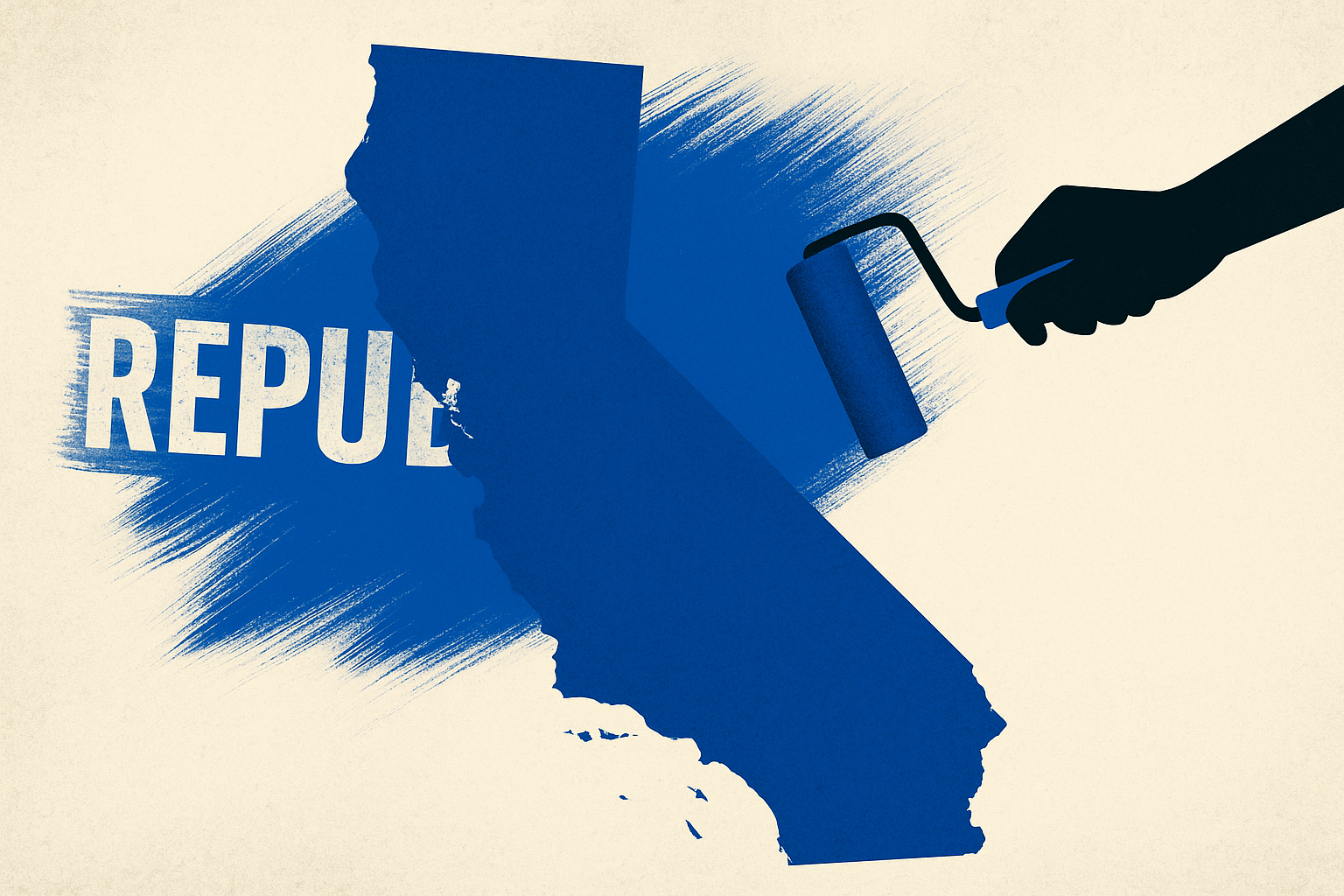California voters have passed Proposition 50 ahead of next year’s midterms. The measure temporarily suspends the redistricting authority that, since 2008, has rested with a neutral Independent Redistricting Commission (IRC) and returns it to the Democratic Party–led state legislature. As of November 5, 3:00 p.m., with 75% of ballots counted, support stood at 63.8%—an overwhelming margin.

On the surface, it’s a win for the Democratic Party. But beneath it lies the seed of a fundamental shift in the national political map—and a dilemma for democracy.
The most significant meaning of Proposition 50 is that California has responded head-on—“an eye for an eye, a tooth for a tooth”—to Republican Party–run states like Texas, Missouri, and North Carolina, which have sought to expand their seats through gerrymandering. With the U.S. House now narrowly split—Republicans 219, Democrats 213—this is a struggle to keep the Republican Party from taking control of the U.S. House in next year’s midterms.
With passage of the measure, California has at least laid the groundwork for the Democrats to pick up a minimum of five additional seats next year. Despite procedural questions about the initiative’s legitimacy, voters signaled they value a balance of power to check the Trump administration more highly. It’s the paradoxical calculation of “accepting unfairness to correct unfairness.”
Yet this decision triggers a debate over democracy’s core values. The IRC was a product of reform, a symbol meant to prevent partisan power carving. Even if Proposition 50 is framed as an unavoidable step to halt Republican Party overreach, it unmistakably repudiates institutional neutrality. Former Governor Arnold Schwarzenegger blasted it precisely for that reason: “Behaving like Trump to avoid becoming Trump is a contradiction.”
The flare fired by California’s Proposition 50 portends deeper polarization and a whirlpool of “political engineering.” In the short term, it may be a strategic win for the Democrats; in the long term, U.S. politics risks sliding into a vicious cycle of party-driven mapmaking.
Expect Republican Party–run states such as North Carolina, Ohio, and Florida, and Democratic Party–run states like New York and Illinois, to mobilize fully to draw districts favoring their side. The 2026 midterms, in the end, could devolve less into a contest of policy than into a battle over “who draws the lines more artfully.”
The next presidential landscape will feel the effects as well. Governor Gavin Newsom treated the initiative’s passage as a test of his political leadership. He stepped to the fore under the banner of “defending democracy by checking Trump’s influence.” Even former President Barack Obama weighed in, urging voters to support Proposition 50 to prevent Republican Party control of Congress. More than $100 million poured into TV and online advertising, an overwhelming campaign. Passage of the initiative is likely to strengthen Newsom’s position with 2028 in mind.
This vote will directly affect redistricting in Korean American population centers, including Los Angeles. If dense Korean American areas are split or scattered in the new process, our voice could be diluted. Conversely, consolidation with adjacent neighborhoods could forge broader political alliances. A single boundary line can reshape the political terrain of the Korean American community. We therefore must participate in and watch the coming remap closely.
The initiative’s approval reflects the triumph of raw power over principle. The Democratic Party’s gambit to secure a House majority next year may have succeeded for now, but over time it risks deepening public distrust and cynicism.
The Democrats should view this not as a “victory” but as the “beginning of responsibility.” They must ask: how can politics be prevented from corroding institutions? Having gained advantage, if they fail to prove fairness and restraint, the backlash in the next election could mirror the last presidential cycle.
The nation as a whole, too, needs to think harder than ever about how to marshal a unified voice amid this sweeping realignment—so our votes don’t scatter and our political power coheres.
[The Korea Daily Editorial Board]



